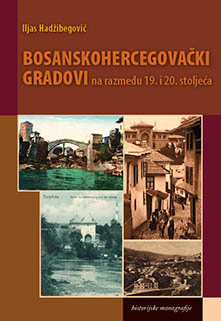
We kindly inform you that, as long as the subject affiliation of our 300.000+ articles is in progress, you might get unsufficient or no results on your third level or second level search. In this case, please broaden your search criteria.

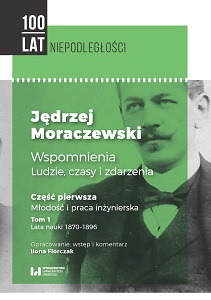
Jędrzej Moraczewski’s thoroughly subjective memories reveal a small dose of privacy. However, through the mesh of the author’s life story, they show the picturesque Galician reality, the mechanisms determining the functioning of institutions, offices and political parties towards the end of the 19th century, as well as the intellectual elite milieu in the 19th-century Lwów. This environment had a great impact on shaping Moraczewski’s national, civil and political consciousness. It also affected the choice of his ideological path and his active participation in public life.
More...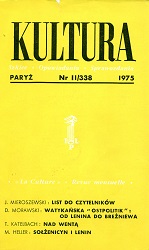
In this issue of "Paryska Kultura," the magazine from the heart of Paris, readers are immersed in a world of Polish literature, culture and history. Through poignant essays, evocative poetry, and insightful discussions, the theme of nostalgia takes center stage as exiled Polish voices reflect on their homeland from afar, creating a rich tapestry of emotions.
More...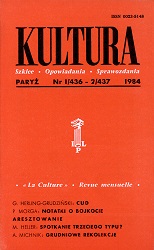
In this issue of "Paryska Kultura," the magazine from the heart of Paris, readers are immersed in a world of Polish literature, culture and history. Through poignant essays, evocative poetry, and insightful discussions, the theme of nostalgia takes center stage as exiled Polish voices reflect on their homeland from afar, creating a rich tapestry of emotions.
More...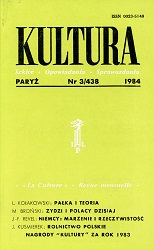
In this issue of "Paryska Kultura," the magazine from the heart of Paris, readers are immersed in a world of Polish literature, culture and history. Through poignant essays, evocative poetry, and insightful discussions, the theme of nostalgia takes center stage as exiled Polish voices reflect on their homeland from afar, creating a rich tapestry of emotions.
More...
In this issue of "Paryska Kultura," the magazine from the heart of Paris, readers are immersed in a world of Polish literature, culture and history. Through poignant essays, evocative poetry, and insightful discussions, the theme of nostalgia takes center stage as exiled Polish voices reflect on their homeland from afar, creating a rich tapestry of emotions.
More...
In this issue of "Paryska Kultura," the magazine from the heart of Paris, readers are immersed in a world of Polish literature, culture and history. Through poignant essays, evocative poetry, and insightful discussions, the theme of nostalgia takes center stage as exiled Polish voices reflect on their homeland from afar, creating a rich tapestry of emotions.
More...
In this issue of "Paryska Kultura," the magazine from the heart of Paris, readers are immersed in a world of Polish literature, culture and history. Through poignant essays, evocative poetry, and insightful discussions, the theme of nostalgia takes center stage as exiled Polish voices reflect on their homeland from afar, creating a rich tapestry of emotions.
More...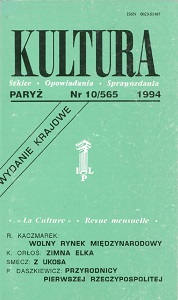
In this issue of "Paryska Kultura," the magazine from the heart of Paris, readers are immersed in a world of Polish literature, culture and history. Through poignant essays, evocative poetry, and insightful discussions, the theme of nostalgia takes center stage as exiled Polish voices reflect on their homeland from afar, creating a rich tapestry of emotions.
More...
In this issue of "Paryska Kultura," the magazine from the heart of Paris, readers are immersed in a world of Polish literature, culture and history. Through poignant essays, evocative poetry, and insightful discussions, the theme of nostalgia takes center stage as exiled Polish voices reflect on their homeland from afar, creating a rich tapestry of emotions.
More...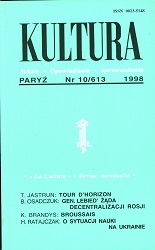
In this issue of "Paryska Kultura," the magazine from the heart of Paris, readers are immersed in a world of Polish literature, culture and history. Through poignant essays, evocative poetry, and insightful discussions, the theme of nostalgia takes center stage as exiled Polish voices reflect on their homeland from afar, creating a rich tapestry of emotions.
More...
In this issue of "Paryska Kultura," the magazine from the heart of Paris, readers are immersed in a world of Polish literature, culture and history. Through poignant essays, evocative poetry, and insightful discussions, the theme of nostalgia takes center stage as exiled Polish voices reflect on their homeland from afar, creating a rich tapestry of emotions.
More...
In this issue of "Paryska Kultura," the magazine from the heart of Paris, readers are immersed in a world of Polish literature, culture and history. Through poignant essays, evocative poetry, and insightful discussions, the theme of nostalgia takes center stage as exiled Polish voices reflect on their homeland from afar, creating a rich tapestry of emotions.
More...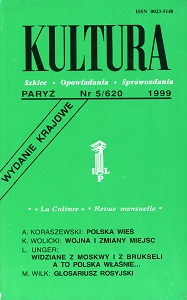
In this issue of "Paryska Kultura," the magazine from the heart of Paris, readers are immersed in a world of Polish literature, culture and history. Through poignant essays, evocative poetry, and insightful discussions, the theme of nostalgia takes center stage as exiled Polish voices reflect on their homeland from afar, creating a rich tapestry of emotions.
More...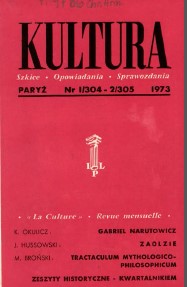
In this issue of "Paryska Kultura," the magazine from the heart of Paris, readers are immersed in a world of Polish literature, culture and history. Through poignant essays, evocative poetry, and insightful discussions, the theme of nostalgia takes center stage as exiled Polish voices reflect on their homeland from afar, creating a rich tapestry of emotions.
More...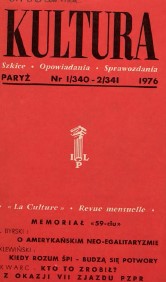
In this issue of "Paryska Kultura," the magazine from the heart of Paris, readers are immersed in a world of Polish literature, culture and history. Through poignant essays, evocative poetry, and insightful discussions, the theme of nostalgia takes center stage as exiled Polish voices reflect on their homeland from afar, creating a rich tapestry of emotions.
More...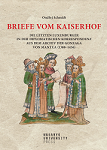
The publication brings a critical edition of Latin and Italian correspondence from the court of the Holy Roman Kings or Emperors Wenceslas (1376–1400/1419) and Sigismund (1410/1411–1437), preserved in the archives of the Gonzaga family in Mantua. The edition contains 52 documents, including letters and mandates of the two Luxembourg monarchs and their officials, but most importantly dispatches sent by Gonzaga envoys from the imperial court to Italy. The individual sources shed new light on Wenceslas and Sigismund as rulers and offer a vivid insight into the life of the court, the practice of diplomacy and the everyday life of travel. In addition, they provide an interesting picture of Bohemian and German lands in the Late Middle Ages from the perspective of Italian observers.
More...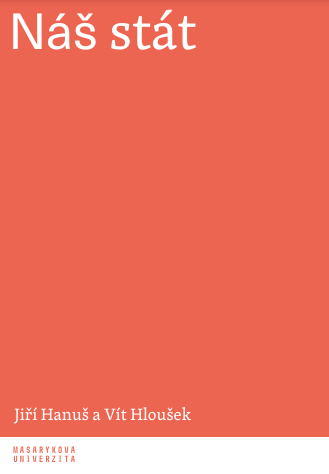
The authors of the publication focus on various forms of the modern Czech (Czechoslovak) state from 1848 to the present. In addition to the basic characteristics of the state, they reflect on which social and national groups accepted certain state forms and which groups, on the contrary, problematized or even ultimately rejected them. They arrive at often surprising conclusions. The book is the product of interdisciplinary collaboration between a historian and a political scientist.
More...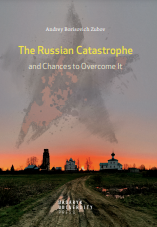
I was asked to give a series of lectures on Russian history, which I did, uniting them under the general title of the “Reasons for the Russian Catastrophe of the 20th Century and Possibilities to overcome it”. I believed then, as I do now, that it is an essential topic to study in order to try to answer two closely related questions: Why in the twentieth century, after the Bolshevik coup, Russia has been a constant source of aggression? and Is there any hope that Russia can change radically, stop being an aggressor and become a peace-loving democratic nation like the EU and NATO countries? I tried to suggest my answers in the six lectures I gave in Brno between October and November 2022 in English. The university later proposed to publish them as a short book. I agreed with enthusiasm, hoping that my texts would contribute to a better understanding of the tragic fate of my people in past and present centuries, the processes that led to the war, and thus to the building of a more lasting peace once it is over.
More...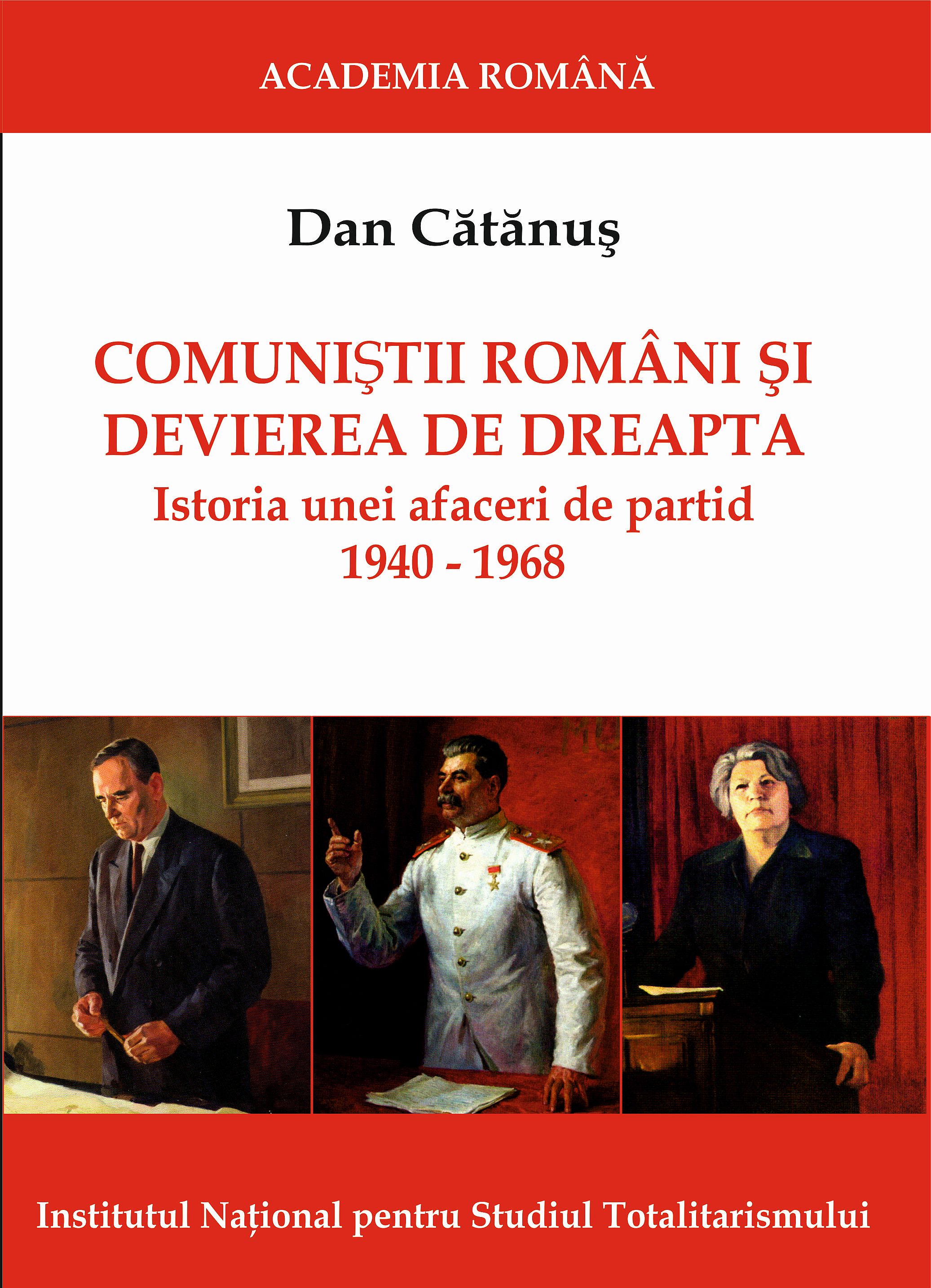
The volume analyzes the origin, evolution and consequences of this controversial episode of the history of Romanian communism: "the right-wing deviation". In 1952, Gheorghiu-Dej accused his main opponents - Ana Pauker, Vasile Luca and Teohari Georgescu – of "right-wing deviation" and removed them from the party leadership. The whole affair was carried out with the direct involvement of Stalin, from its debut to the final decision. The reprisals that followed were not limited only to the three "deviators", but also encompassed, in ever wider circles, their relatives, friends, more or less close collaborators, reaching even vast social segments considered to have been protected by the former leaders. The unmasking of the "right-wing deviation" in the Romanian Workers Party in 1952 was only the end of a deeper business that was rooted deep in the past. The story is fascinating, because, following the thread of rivalry that has been created since the period of illegality between the future protagonists of the struggle for pre-eminence in the party, we discover personal stories, controversial episodes of the communist movement before and after august 23, 1944. The second leading thread, permanently present, is that of the relationship with Moscow, in its double hypostasis: of direct involvement, through indications masked in tips and suggestions, but also by transforming the Soviet factor into a book that the Romanian communist leaders each tried to play as best they could.
More...